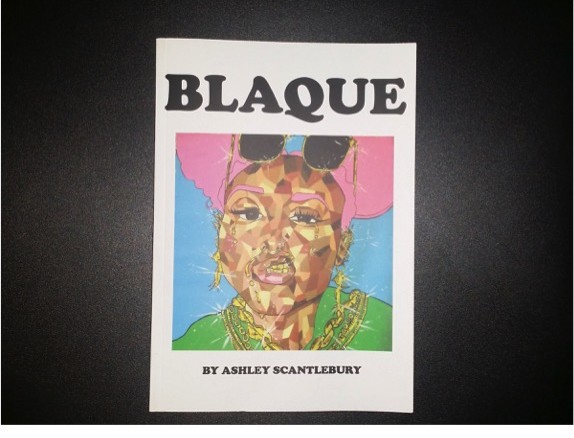
Blurb: A collection of original poetry and photography centred around the Blaque female experience in Britain. Some of the pieces are very abstract and will require an open mind to digest them.
Warning: The pieces included in this book are deliberately provocative in an attempt to spark some overdue debate.
Ashley Scantlebury’s latest poetry collection is one her photographer tells me is her first. Primarily featured in and around London, albeit with a very obvious poem about Birmingham; BLAQUE offers a unique insight into life as a Black Woman and the several struggles many face in what cannot be argued as a patriarchal society.
So what is BLAQUE? Well, according to Scantlebury; ‘Blaque’ refers to people of an African decent minus all of the “Black” stereotypes. By using ‘Blaque’ instead of ‘Black’ it is an attempt to separate the word “Back” from it’s connotations and it’s relationship with us as Black people.
She wanted to use a different word, not only to illuminate how many times we as a society are using it, but also to eliminate the negative images and the words/concepts associated with the word “Black”, which we sometimes subconsciously live up to in virtue of hearing the word.
The collection of poems, which number sixteen in total; cover aspects of life from beauty and it’s portrayal of Black Women, to Parenthood, sex and fetishes, gentrification, self-hate and quite possibly, though I am not entirely sure- death.
This collection of poems therefore, are more than just several stacks of short, abstract stories- but are instead several compound experiences which have happened so regularly that even when a theme reoccurs, it feels like a new experience altogether.
As such, the poetry which Scantlebury has written is more than just poetry which you can breakdown to understand, it is also Poetry in which enjoyment stems from the readers personal experiences.
As such, BLAQUE has put me in a situation where I have been unable to review the poems for their separate merits because I am not a Black Woman. Separately however, as a Black person, I am able to relate to a number of other poems and value those for their merits.
As such, BLAQUE is a unique experience for each reader because we have all experienced the various themes in a variety of ways, which would again affect us differently.
So what about the trigger warning in the blurb? Well, personally I had no reason to jump to my computer and compile a series of angry tweets about BLAQUE, nor did I feel like it floated over my head because it did not make sense or resonate with me.
Instead, I began to sympathise with the difficulty of being a Black Woman in the UK, not because I had never heard of these struggles before; but because it was yet another account of the same injustices many women face.
As a book it is strong too. The photography by ShotbyDk compliments the poetry and matches the content without making the poetry or the photography feel uncomfortable. Only once was I left questioning why the image was there, but with a turn of the page my query had been answered, almost making me forget why I had the question in the first place. I do wish I could make more comments on the style of photography, but as it is not my area of expertise, I can only compliment them as a passive observer.
As such, my review for BLAQUE is a positive one, simply because it does not shy away from the legitimate issues Black women face. Secondly, as a collection of poems rather than a story, it challenges these issues in bite sized portions, eloquently detailing and highlighting issues we must discuss with ourselves, one another and the observing community.
Essentially, BLAQUE recognises the problems we have in the ‘Black community’ and opens up much needed and overdue dialogue and for that, I cannot fault BLAQUE as a piece of literature.
